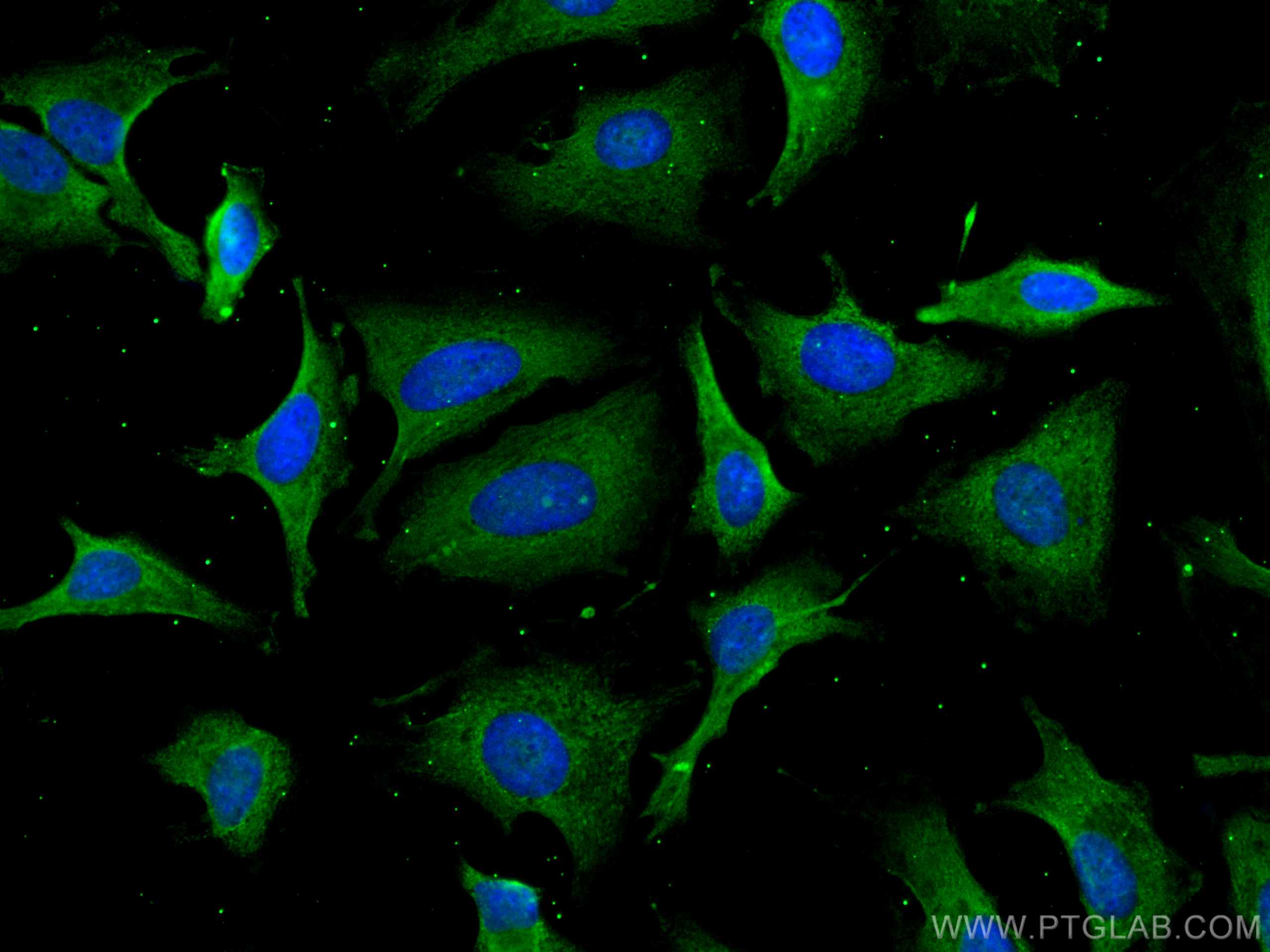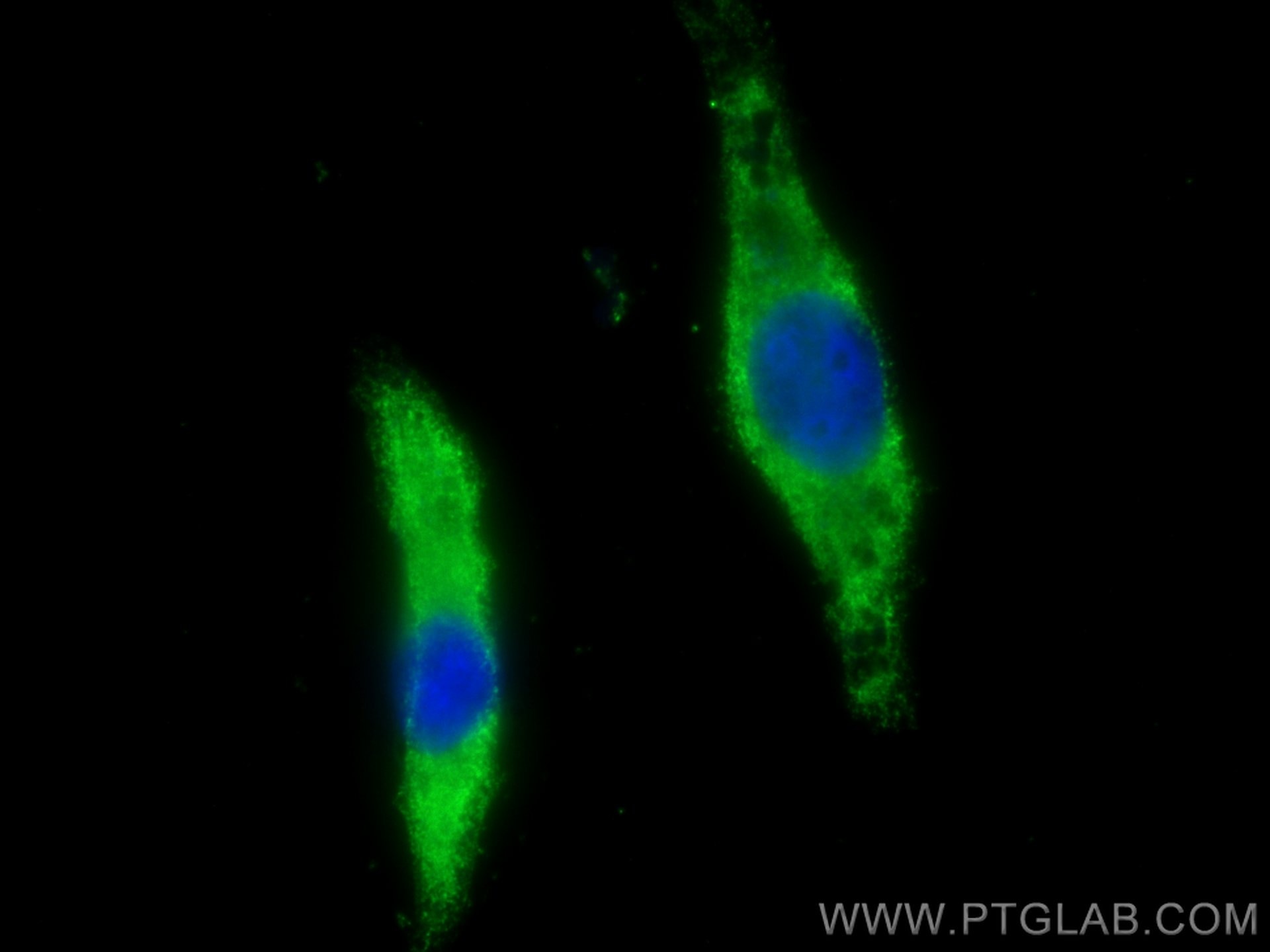- Phare
- Validé par KD/KO
Anticorps Monoclonal anti-PSMD9
PSMD9 Monoclonal Antibody for IF
Hôte / Isotype
Mouse / IgG1
Réactivité testée
Humain, rat, souris
Applications
IF
Conjugaison
CoraLite® Plus 488 Fluorescent Dye
CloneNo.
1H2G1
N° de cat : CL488-67338
Synonymes
Galerie de données de validation
Applications testées
| Résultats positifs en IF | cellules HeLa, cellules U2OS |
Dilution recommandée
| Application | Dilution |
|---|---|
| Immunofluorescence (IF) | IF : 1:50-1:500 |
| It is recommended that this reagent should be titrated in each testing system to obtain optimal results. | |
| Sample-dependent, check data in validation data gallery | |
Informations sur le produit
CL488-67338 cible PSMD9 dans les applications de IF et montre une réactivité avec des échantillons Humain, rat, souris
| Réactivité | Humain, rat, souris |
| Hôte / Isotype | Mouse / IgG1 |
| Clonalité | Monoclonal |
| Type | Anticorps |
| Immunogène | PSMD9 Protéine recombinante Ag25654 |
| Nom complet | proteasome (prosome, macropain) 26S subunit, non-ATPase, 9 |
| Masse moléculaire calculée | 27 kDa |
| Numéro d’acquisition GenBank | BC004213 |
| Symbole du gène | PSMD9 |
| Identification du gène (NCBI) | 5715 |
| Conjugaison | CoraLite® Plus 488 Fluorescent Dye |
| Excitation/Emission maxima wavelengths | 493 nm / 522 nm |
| Forme | Liquide |
| Méthode de purification | Purification par protéine G |
| Tampon de stockage | PBS avec glycérol à 50 %, Proclin300 à 0,05 % et BSA à 0,5 %, pH 7,3. |
| Conditions de stockage | Stocker à -20 °C. Éviter toute exposition à la lumière. L'aliquotage n'est pas nécessaire pour le stockage à -20oC Les 20ul contiennent 0,1% de BSA. |
Informations générales
PSMD9 is a ubiquitous protein of eukaryotic cells and is a chaperon of the 26S proteasome complex, which degrades ubiquitinated proteins in eukaryotic cells and contributes to the degradation of intracellular proteins into antigenic peptides for antigen presentation by MHC class I cells. The 26S mammalian base sub-complex involves three distinct modules which have ATPase subunits distinctly associated to three chaperones, one of which is PSMD9 regulating the modules assembly. The PSMD9 ubiquitous regulatory role within the proteasome implies its potential pleiotropic effects within different physio-pathological systems. PSMD9 is known to form a stable subcomplex with PSMC3 and PSMC6, two of the AAA-ATPases, assisting in the assembly of the 20S and 19S particles to form the holo complex.
Protocole
| Product Specific Protocols | |
|---|---|
| IF protocol for CL Plus 488 PSMD9 antibody CL488-67338 | Download protocol |
| Standard Protocols | |
|---|---|
| Click here to view our Standard Protocols |



